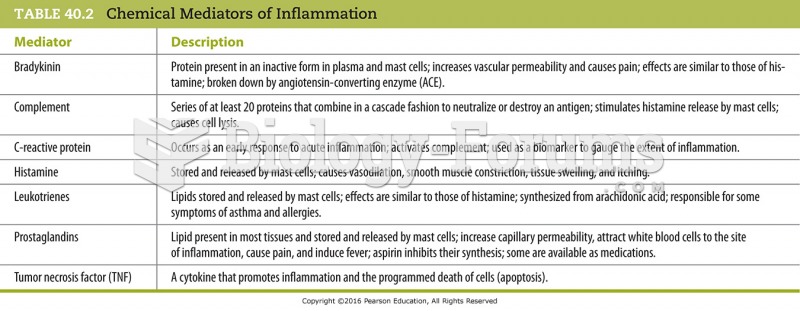|
|
|
This year, an estimated 1.4 million Americans will have a new or recurrent heart attack.
All adults should have their cholesterol levels checked once every 5 years. During 2009–2010, 69.4% of Americans age 20 and older reported having their cholesterol checked within the last five years.
As many as 20% of Americans have been infected by the fungus known as Histoplasmosis. While most people are asymptomatic or only have slight symptoms, infection can progress to a rapid and potentially fatal superinfection.
Asthma occurs in one in 11 children and in one in 12 adults. African Americans and Latinos have a higher risk for developing asthma than other groups.
Pope Sylvester II tried to introduce Arabic numbers into Europe between the years 999 and 1003, but their use did not catch on for a few more centuries, and Roman numerals continued to be the primary number system.
 Lie prone with your head turned to one side. Put your arms out to your sides and bend your elbows at ...
Lie prone with your head turned to one side. Put your arms out to your sides and bend your elbows at ...
 A typical pedestal grinder with a wire wheel on the left side and a stone wheel on the right side. ...
A typical pedestal grinder with a wire wheel on the left side and a stone wheel on the right side. ...





